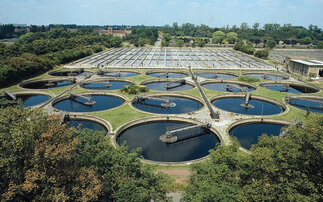Global research programme endorsed by host of high profile figures, including broadcaster David Attenborough, former energy secretary Ed Davey and Unilever CEO Paul Polman
A global clean energy R&D plan with the goal of making renewables cheaper than fossil fuels has won the backing of a host of prominent figures, including boradcaster David Attenborough, former Energy and Climate Change Secretary Ed Davey and Unilever CEO Paul Polman.
In a letter to the UN published today more than 27 business leaders, academics and scientists have expressed their support for the Global Apollo Programme, which was proposed earlier this year by a coalition of economists and energy experts including former Treasury advisor Lord Stern and former BP chief executive John Browne.
The initiative aims to emulate the Apollo programme to put a man on the moon, by mobilising $15bn a year of investment into clean energy research in a bid to reduce the cost of renewable power to a level where it can widely compete with fossil fuels without recourse to subsidies.
Today's letter calls on governments to formally adopt the plan at the upcoming UN climate change summit in Paris later this year, where world leaders will attempt to agree a new global emissions reduction agreement.
The letter argues that global warming can be addressed without significant economic costs. "A sensible approach to tackling climate change will not only pay for itself but provide economic benefits to the nations of the world," the letter reads, adding that a sharp increase in R&D investment is needed to accelerate the deployment of clean energy technologies.
The news comes as top French diplomat Laurence Tubiana called on governments to outline long-term pathways to decarbonisation as part of a UN deal. Speaking to reporters on Monday, Tubiana said governments are being asked to develop carbon reduction plans covering the period to 2050 to avoid global temperature rising above two degrees.
Countries are currently submitting national climate action plans to the UN, known as Intended Nationally Determined Contributions (INDCs), which generally set out climate-related targets for the period through to 2030. However, some countries are keen to see any new international agreement feature longer term targets and plans, including a potential target for the global economy to move to net zero emissions during the second half of the century.
Tubiana's latest intervention came as doubt was cast over the effectiveness of current national emissions reduction pledges this week, after a new study by Climate Action Network (CAN) Europe suggested the EU's carbon budgets for the period from 2021 to 2030 could vary by a gigatonne depending on policy decisions expected next year.
CAN Europe translated the EU's pledge to reduce emission by 40 per cent by 2030 into a carbon budget for the period. It found that depending on the political choices of member states - such as the accounting of forestry emissions or regulations governing the carry-over of surplus emissions - the carbon budget could vary from 27 billion to 43 billion tonnes of greenhouse gases.
This article is part of BusinessGreen's Road to Paris Hub, hosted in association with PwC









